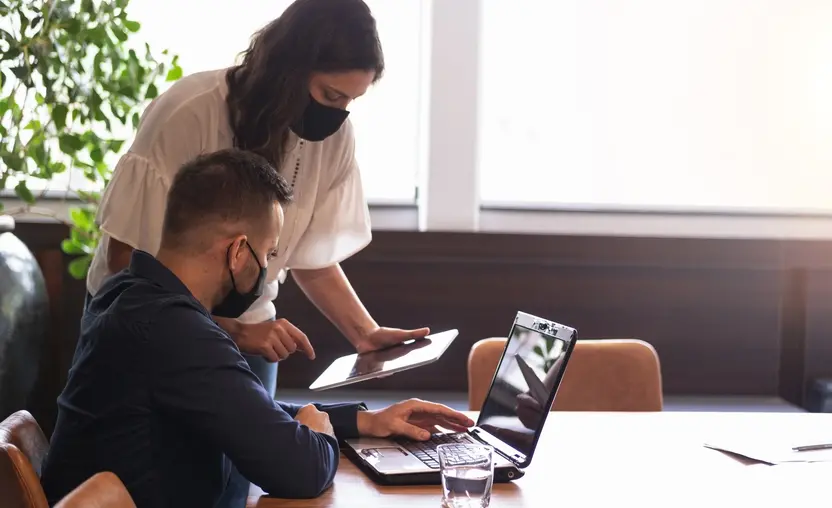As a caseworker or professional at a nonprofit organization or social services agency, you know that it’s a given that notes are going to be taken in some form or another during sessions with clients. But which note-taking method is least obtrusive to the client? For example, how would you feel if your doctor or therapist began tapping on a tablet as opposed to writing on a notepad or typing on a computer?
Clients and service providers alike have discussed this topic over the last few years, and it’s clear that there are mixed feelings about bringing technology into a medical or therapeutic interview. As a result, we thought it might be helpful to share some recent research on the subject.
Key findings about electronic note-taking
This research focuses specifically on the technology used by medical professionals when meeting with patients. However, there are obvious parallels to similar devices being used in a therapy session, meaning many of these findings are applicable to counseling sessions. This research, performed by the Health IT research group Software Advice, is from a survey report of 4,500 patients called Patient Preferences About EHRs. A few notable insights from the study include:- Of the patients surveyed, 42% of respondents indicated that they somewhat or strongly preferred the use of an electronic device during point-of-care charting.
- Only 12% preferred the more traditional paper and pen. Most interestingly, this was true across all age groups and genders.
- Patients prefer the use of a tablet over a laptop, and laptops are preferable to a desktop computer.
What this research means for service providers
Increased use of mobile devices in the exam or therapy room can allow for better retention of information and more accurate collection of data. When a caseworker hears something for the first time, they typically retain most of the information for a few minutes. Over the course of the next few hours, however, some parts of that information will start to fade. As a result, this can create problems when it comes to keeping accurate, comprehensive client records that will help you provide smooth, positive client experiences. Adding information to your client database as soon as possible prevents key details from being lost. For example, collecting this data during the session can help a caseworker remember an important detail from the client’s initial assessment. This could have a considerable impact on the treatment plan being created for a client, which can speed up the path to the desired client outcome and yield more positive results. As the Software Advice study shows, bringing a tape recorder into every meeting is not the best solution. This method can make clients feel uneasy, and most individuals are less likely to share details if they feel uncomfortable. Recording and transcribing notes can also be an administrative burden on caseworkers. They can save time, increase efficiency, and avoid taking the same notes twice by entering data directly into the agency’s client management software system. As the researchers note in the conclusion of the study, the best advice for healthcare professionals is “to embrace … technology — and, for those already using it, not to shy away from using electronic charting at the point of care.” Bonterra Program Management (formerly Social Solutions) embraces the need for clinicians, counselors, and therapists to become increasingly mobile. To help meet this need, we are proud to offer web-based case management software that allows service providers to access their systems from anywhere, at any time.
Ready to Get Started?




